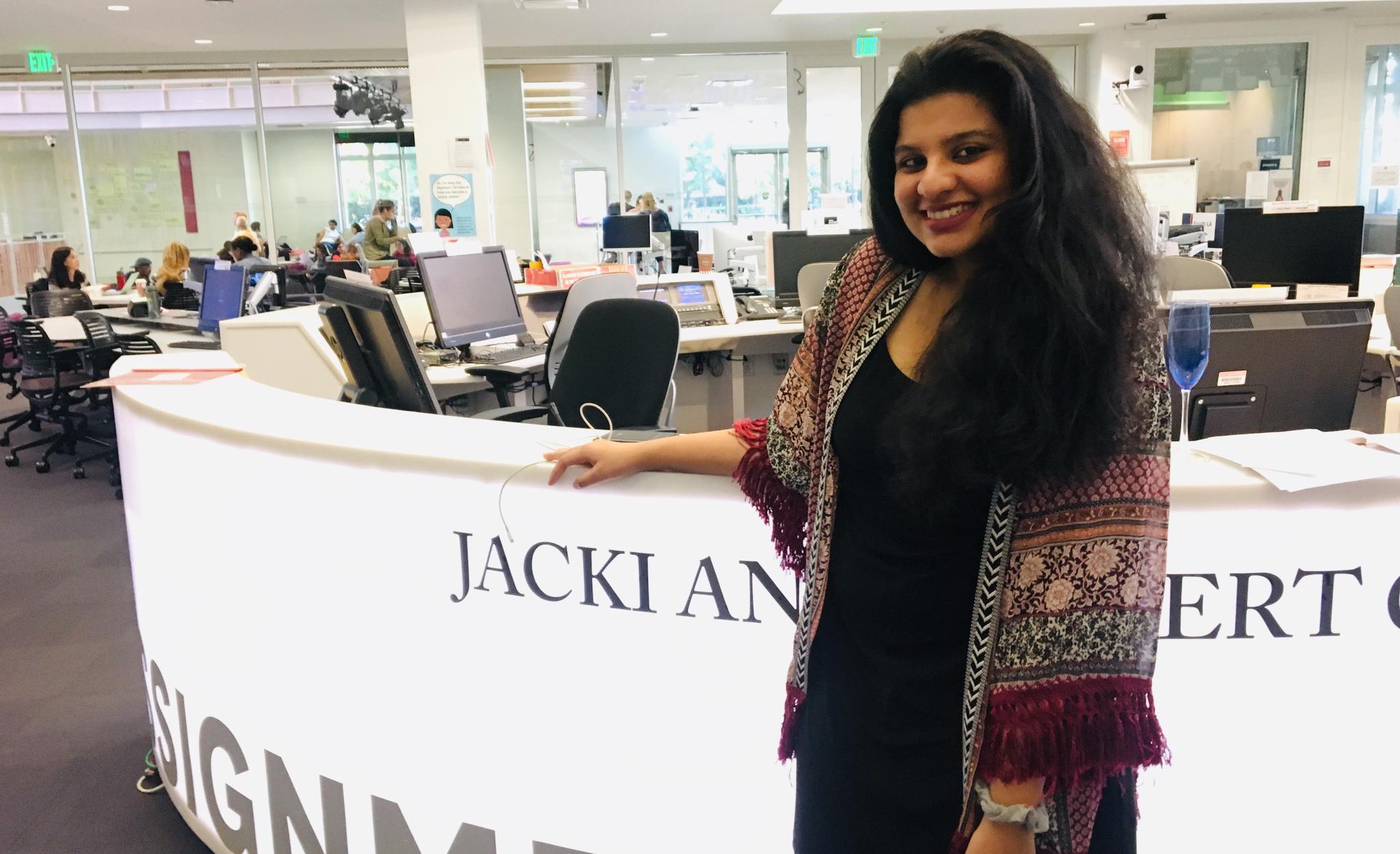Hayat interviewed NPR culture journalist Hafsa Fathima about her road to journalism, ups and downs of the job, and more.
Tell us about your journey in journalism: how did you get started, what were some of your early interests, and how did you develop that into a career?
I’ve always been fascinated by the idea of storytelling. My sophomore year in college was the first time I put those interests to the test when I joined my college paper; that would later inspire me to apply for an internship at The Hindu, one of India’s largest English dailies. I wrote on culture, art, books and music – fascinated by how Western trends and media merged effortlessly into a traditional city and culture.
After three years, I knew I wanted to tell stories through other mediums too, and I applied for MA programs here in the United States. Eventually, I went to USC’s Annenberg School for Communication and Journalism, the first step to the career in public radio I have today.
How does your heritage impact or guide your writing and career?
The words “Third Culture Kid” have always deeply resonated with me. The term refers to someone who grew up between different countries, cultures, occupying a liminal space between them constantly. I spent part of my childhood in Mississauga, Ontario, then Chennai, India, before I moved to the United States in my early 20s. Identity and home were complex subjects to navigate, as someone who felt like a perpetual immigrant wherever I lived – and a Muslim woman negotiating my own faith and place in the world.
My personal identities have always been subjects of larger cultural conversations – and often debate. Writing helped me place myself in the cacophony that surrounded who I should or shouldn’t be, what I should wear or not. Hearing and documenting the stories of others was also an immensely grounding experience.
What are the most rewarding parts of your job?
There is a genuine difference I believe journalism can make; I always try to remember I’m compelled to do this job with empathy. Every story I’ve spent sleepless nights is worth it when I’ve had a source thank me because it made a difference, or reach out months later to tell me they’re safe. People are immensely multifaceted in the most moving ways, I’m always incredibly humbled I get to see those sides of them, even for a brief phone call.
What are the most difficult parts of your job?
There are the technical aspects of course, the pressure of the deadline, contacting sources who drop out of interviews last minute. Burnout is very real, especially after the two years we’ve been through with this pandemic. There are days when I’ve felt like my brain has literally fried, and those are the days when I need to remind myself I deserve to take a break. Balancing the demands of the job and looking after myself has been a work in progress, but one that’s made a difference.
How do you navigate the sensitivity required from journalism?
That’s a skill I think we’re always developing and one that improves the longer you’ve been at this. When I’m covering a sensitive issue like immigration, I usually like to pre-interview people off-record and establish a rapport of trust, understand what their boundaries are and see what they’re comfortable sharing. Editors are also amazing resources when you need to talk things out! I know I’ve gotten some of the most powerful advice about how to handle a sensitive situation from my editors, all of which I keep building on.
Check out the latest from Hafsa Fathima on NPR here.



